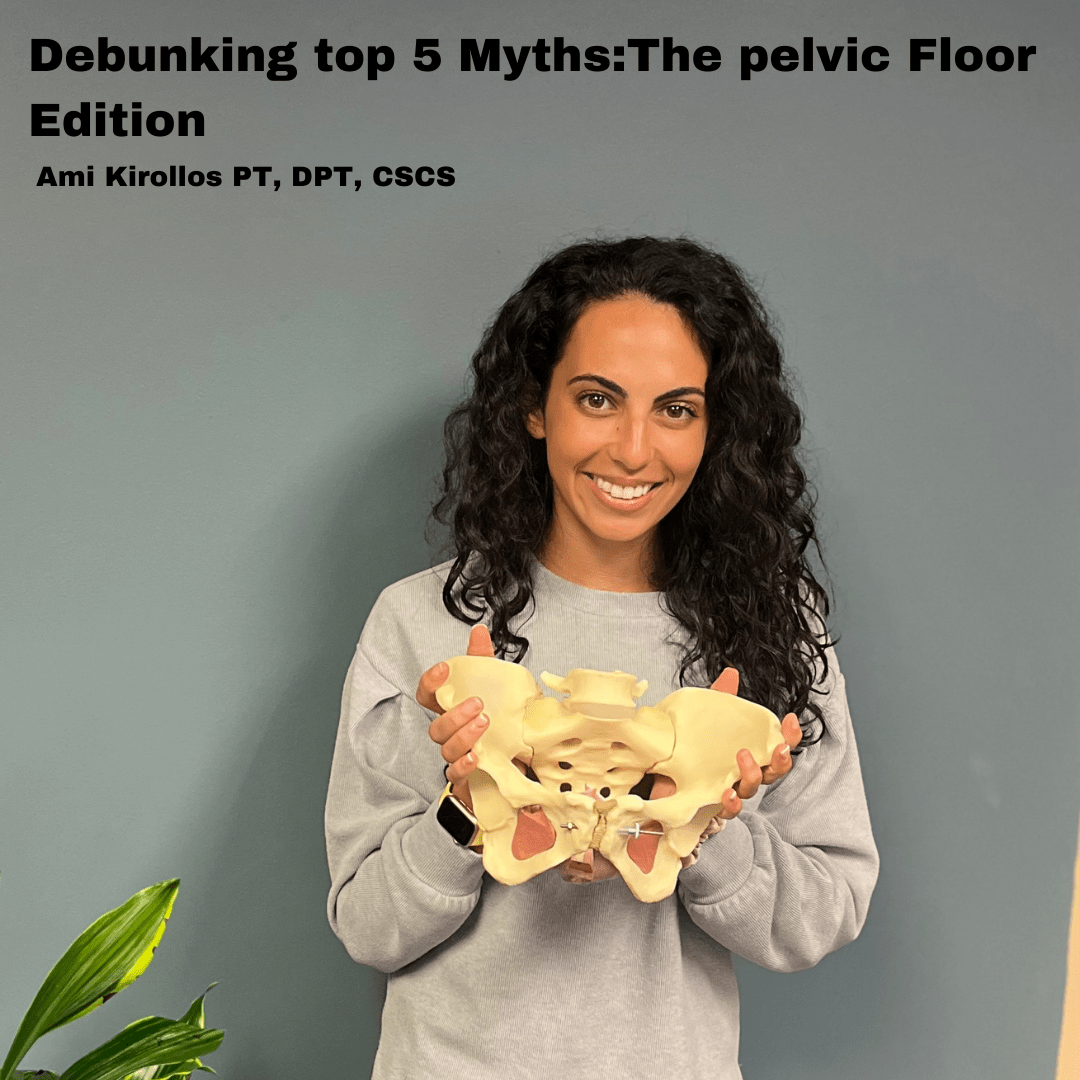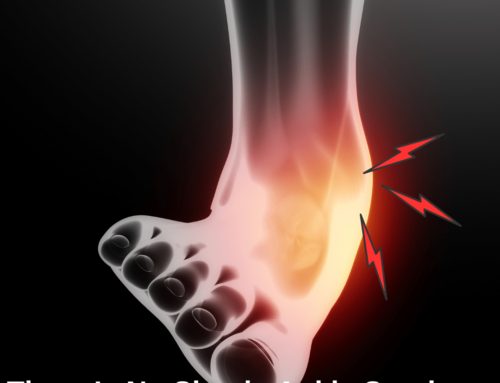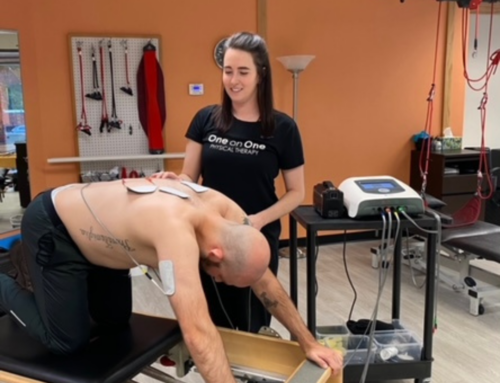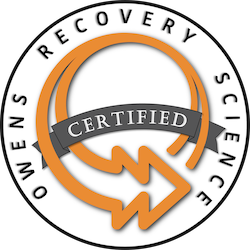Debunking top 5 Myths: The Pelvic Floor Edition

Body Myths: The Pelvic Floor Edition
We get a lot of information about our bodies from all sorts of sources today (your Instagram feed, the news, and even your friendly neighbor who’s been on “WebMD” a few too many times…) So what is the truth and what is a myth? We will start with the “Pelvic Floor” which remains a mystery to MANY of us. So let’s set the record straight:
“Wetting yourself with every sneeze, cough, or belly laugh, that’s normal…that’s why I bought stock in adult diapers!:”
A: MYTH- Sure, after the birth a lot has changed, and some incontinence is normal for the first 6-months or so postpartum. However, after this initial period of healing if our pelvic floor has been retrained sufficiently we should not be experiencing significant or frequent stress incontinence. A number of factors may contribute to this, pelvic floor muscle weakness OR tightness, scar restrictions from C-Section, and a number of other possibilities.
“Painful sex? I thought that was normal?”
A: MYTH- nope! Again, outside of the initial postpartum period where sex can be more sensitive as tissue is still healing, intercourse should NOT be painful. There are a number of causes of pain with intercourse, ranging from pelvic floor overactivity to dryness of tissues, and psychosocial history.
“I often get a “sudden urge” to go out of the blue and sometimes I don’t make it…”
A: Yep..That’s a MYTH too: Urgency can be triggered by a number of things, and at times if we’ve taken in a lot of liquids, it can be normal. However, feeling like you need to go and go RIGHT NOW, is common, but not normal. There are a number of reasons this sudden urgency may happen, anything from habits like “just in case” peeing or pelvic floor muscle overactivity and tightness. Working with a pelvic floor PT can help you get down to the bottom of this.
Straining to use the bathroom… all the darn time, doesn’t everyone do that?
A: Ginormous MYTH- With an adequate diet, proper pelvic floor mechanics, and muscle tone we should not have to go blue in the face to have a bowel movement or feel like we need to “push” our urine out all the time. Of course, occasional constipation happens, but this should not be a daily occurrence. Constipation can be correlated with pelvic floor muscle restrictions or abnormal motor control.
“Kegels” (pelvic floor contractions) are always the answer to pelvic floor issues:”
A: BIGGEST myth-in many cases of pelvic floor dysfunction, Kegels (pelvic floor muscle contractions) are not indicated. In fact, sometimes it may make matters worse, as the true problem is coming with your inability to relax your pelvic floor. So, before you invest in that Bluetooth portable “Super Kegel” trainer, it’s so important to get a proper evaluation of your pelvic floor by a pelvic floor specialist to confirm that’s what you truly need.
cases of pelvic floor dysfunction, Kegels (pelvic floor muscle contractions) are not indicated. In fact, sometimes it may make matters worse, as the true problem is coming with your inability to relax your pelvic floor. So, before you invest in that Bluetooth portable “Super Kegel” trainer, it’s so important to get a proper evaluation of your pelvic floor by a pelvic floor specialist to confirm that’s what you truly need.
Does any of these interest you or sound familiar? Then you may be a candidate for Pelvic Floor PT.
-Talk to a Pelvic Floor PT: Remember your pelvic floor is part of your core. Pelvic floor dysfunction can look like many things-back pain, incontinence, GI issues. All of which may be impacting your daily life. Pelvic floor therapists specialize in optimizing and correcting these issues and concerns…
Our focus on One on One Physical Therapy is to always seek out current treatment methods and approaches.
Click here to book your appointment with the One on One Physical PT staff
.
Want to learn more? Here’s some further reading on the topic: https://onetherapy.com/the-diaphragm-and-the-pelvic-floor-a-dynamic-duo/
Works Cited:
Picture credit: https://www.pennmedicine.org/updates/blogs/womens-health/2015/october/five-myths-about-childbirth-and-uterine-prolapse
https://www.healthyconnections.org.au/2020/02/03/pelvic-floor-exercises/






